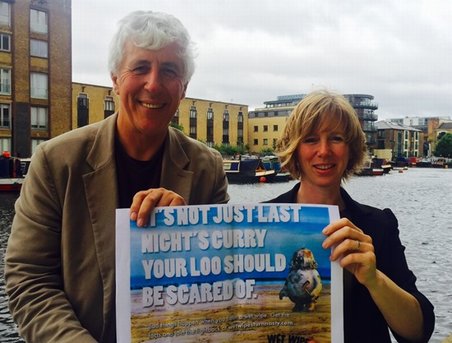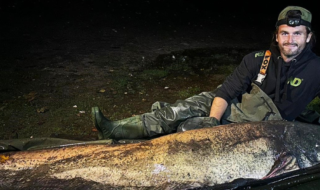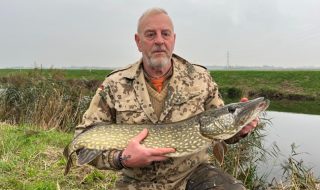The campaign launched by the Marine Conservation Society (MCS) against pollution caused by discarded wet wipes has this week received the backing of the Angling Trust – the national representative body for all forms of recreational fishing.
The MCS ‘Wet Wipes Turn Nasty When You Flush Them’ campaign highlights the problems of sewer blockages caused by flushing wet wipes, which contain thousands of micro plastic threads, down the toilet and urges the public to get behind the charity’s call for better wet wipe labelling.
Water companies say there are over 366,000 sewer blockages throughout the UK every year, of which between 50% and 80% are caused by fats, oils and grease, wipes, sanitary waste and other unflushable items. Those figures have resulted in about £88 million being spent annually on sorting out the blockages – costs that will be paid for through higher customer bills.
Figures obtained by the Angling Trust from Thames Water, the UK’s largest water company, show that the 62 % of all suspected and confirmed pollution incidents on their sewer network were down to the disposal of fat and oil combining with non-degradable products such as wet wipes.
In some cases these created giant fatbergs the size of a London bus including one discovered in Kingston in Surrey estimated to weigh a staggering 15 tonnes.
Thames Water are running a high profile ‘Bin it don’t Block campaign’ to highlight the consequences of sewer blockages. The Thames Water briefing stated: In 2015 we experienced around 110 pollution incidents caused by blockages on our network from either wet wipes or fat, oil and grease.
We experience on average 85,000 blockages a year due to these two causes and estimate that the total cost of dealing with these problems adds increases of over £12 million to our customers’ bills each and every year.
Angling Trust National Campaigns Coordinator Martin Salter said: “When sewers overflow the pollution invariably ends up in a nearby river and stream damaging wildlife and killing fish. In my own area a tributary of the river Loddon was recently polluted with untreated sewage as a result of a fat and wet wipe blockage. Probably the worst example occurred in 2011 at Danson Park Lake in the London Borough of Bexley when build-up of wipes and fat completely blocked the local foul sewer causing sewage to flow into this popular fishing lake. The ammonia levels in the water went off the scale killing 3,000 fish – the majority of the population present – across all ‘year classes’. It is because of entirely avoidable incidents like this that the Angling Trust is 100% behind the campaign to end the irresponsible discarding of wet wipes and other micro plastics into the sewerage network.
” The use of wet wipes is on the increase and during the MCS Great British Beach Clean, volunteers found nearly 4,000 wet wipes around the UK coastline – that’s roughly 50 for every kilometre cleaned – a 30% rise on the previous year and a 400% rise in a decade. Wet wipes also pose a massive threat to marine life as they never go away and just get slowly broken down to become microplastics which are then ingested. Studies show that 663 marine species have been negatively impacted by ingesting microplastics.
These range from tiny zooplankton to fin fish and larger marine animals such as fin whales. David Mitchell, Head of Marine at the Angling Trust added: “Many species of sea fish are now ingesting the tiny micro-plastic particles found in wet wipes and other products that enter the sea and we then catch and eat these contaminated fish. Marine litter – particularly plastics – is a growing problem. If more people realized what they are inadvertently throwing down the toilet is ending up back on their plates in the fish that they eat they might just think again.”
The Marine Conservation Society’s campaign aims to persuade retailers and manufacturers to clearly label their wet wipe products with a ‘DON’T FLUSH’ message on their packaging so they go in the bin, not down the loo. And even wipes that are labelled flushable are failing to meet the water industry standard which is just adding to the problem and risking further pollution of our rivers and oceans. The Angling Trust is encouraging anglers to visit the MCS campaign website and sign the petition. The website and petition can be found by clicking HERE. Gareth Purnell Total-Fishing (UK) Ltd






